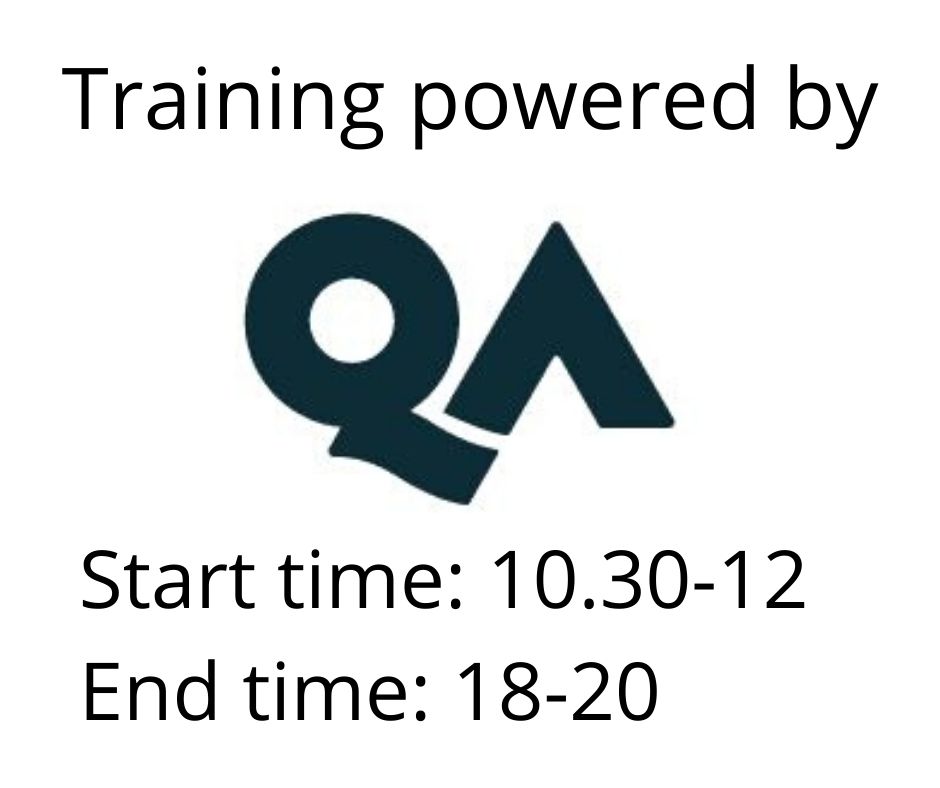ICAgile – Agile Fundamentals (ICAF) Total Learning
Koulutusmuoto
Kesto
2 päivää
Hinta
2030 €
QA Total Learning™ is our newest and most effective way to learn.
Combining the best of digital and live learning, with access to world-class industry experts, we focus on ensuring you can apply your learning to help you drive impactful results in your workplace. What's more, our digital platform gives you the tools to track your progress and manage your own learning.
This Total Learning course is for anyone who is looking to grasp the fundamentals of Agile. It provides an overview of the Agile framework and insights that can be highly beneficial, whether you are in a business or a technical role.
Learners will be experienced team members or managers transitioning into Agile ways of working. Alternatively, they could be in junior technical roles working within existing Agile teams seeking to gain a bigger picture view of Agile.
In this Total Learning course, learners will access the best of both digital and live learning to achieve the ICAgile fundamentals certificate, while discovering how to implement key principles of Agile at work. This includes the Digital stage, designed to explore what it means to be Agile, which includes quizzes and a combination of video and written content.
The two-day virtual Live event focuses on bringing the Agile mindset to life though practical activities, where learners can experiment with Agile tools and techniques in an innovative learning environment.
- apply tools and techniques to create a common, shared understanding of Agile within a team.
- build a product backlog and identify what it should contain and why.
- demonstrate techniques for identifying and categorising users and customers and how to engage with them.
- demonstrate progressive elaboration through user stories and kanban boards, and show how estimation can be used to eliminate uncertainty.
- conduct a retrospective and relate the use of retrospective techniques in your own workplace.
This course is suitable for anyone with no prior knowledge of Agile who is considering, evaluating, or is involved in a move towards working in (or with) an Agile team.
This Total Learning course consists of three key stages, all explained during a 1-hour virtual kick off session, which includes a Q&A session:
- Digital stage – up to 10 hours completed over a minimum of 2 weeks
- Live event – 2 days
- Apply stage – 3 hours over a 3 month period
Digital stage
The Digital Learning is valid for 3 months from the date of the kick off session
- Module 1: Introduction
- Course and Apply introduction
- Digital introduction and welcome
- Module 2: What is Agile?
- Agile outside Software Domain: Vistaprint case study
- What is Agile?
- Why is Agile critical in the 21st century?
- Why is your organisation adopting Agile/why should your organisation adopt Agile?
- The Agile Manifesto
- Reflecting on The Agile Manifesto
- Critical Success Factors
- Reflection: Critical Success Factors
- What is Agile? Knowledge check
- Module 3: Agile Culture, mindset, and frameworks
- Culture and mindset
- Understanding the Agile mindset
- Agile frameworks
- Agile in context (as a journey)
- The Vistaprint Agile mindset
- Understanding communication barriers
- Barriers to communication at your workplace
- Physical work environments
- Techniques for shared understanding
- The Vista case study - how did they overcome communication barriers and utilise shared understanding techniques?
- Scenario: The non-Agile workplace
- Module 4: Self-organising teams
- Self-organising teams
- Reflection: Has your team embraced self-organisation?
- Why are self-organising teams so vital to Agile?
- VUCA and Stacey
- Module 5: Value-driven development
- Value-driven development
- Before we begin - what is quality and value?
- Value and quality
- Retaining quality
- What is flow?
- Context switching and cross-functional dependencies
- Cross-functional teams at Vistaprint - case study
- Value-driven development knowledge check
- Module 6: Customers and Stakeholders
- Stakeholders and customers
- What is a stakeholder?
- Pre-learning knowledge check
- Who are your stakeholders?
- Vistaprint case study - engaging their stakeholders
- Your customers
- Requirements
- Explaining user stories
- INVEST model
- Creating your own user stories
- User involvement
- User feedback
- Stakeholders and users knowledge check
- Module 7: Planning and adapting
- Planning and adapting
- Pre-learning knowledge check
- Planning - progressive elaboration
- Estimating
- Planning Poker
- Estimating - Planning Poker
- Module 8: Conclusion
-
Live event
During the 2-day virtual Live event, learners will work individually and in teams to produce tangible outputs using Miro to provide a collaborative and interactive workspace.
- Introduction
- The Agile Manifesto
- Critical Success Factors
- Agility-Agility-Agility
- Creating shared understanding
- Shifts in roles
- Incremental development
- Continuous integration
- Continuous delivery
- Levels of Agile planning
- Planning and adapting
- Process and product adaptation
Apply at work
At the Apply stage, learners will translate the skills gained during Digital and Live stages into their place of work, implementing Agile practices, tools, or techniques proving their ability to ‘be Agile while doing Agile’. The Apply stage will include:
- Workplace Application Plan aligned to business objectives and context, confirmed by line managers.
- Plan, set, and action your set of personal objectives, based on four key Agile Fundamentals skills, the four skills are:
- Skill 1: Clearly distinguish the practices, values, principles, and Agile mindset and how to apply them in their current environment.
- Skill 2: Improve interaction with other team members, enhancing self-organisation and collaboration.
- Skill 3: Promote iterative and incremental work and recognise the importance of value and quality in what is delivered.
- Skill 4: Identify opportunities in your environment to incorporate Agile practices.
- Showcase newfound Agile skills and Agile mindset at work



